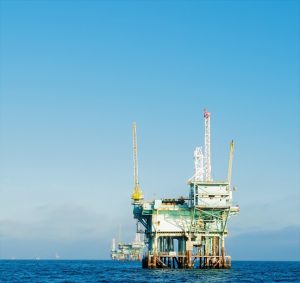30 November 2018
“We are at heart environmentalists,” CEO Robert Hosking of oil explorer and soon-to-be producer, Karoon Gas told shareholders at today’s annual general meeting in Melbourne. The company, which is about to drill an offshore oil well in Peru that has a CO2 emissions potential of 110 million tonnes (that’s enough to fuel 8.5 million cars for a year), was eager to address the issue of climate.

.
With operations spread from Australia to Peru and Brazil, Karoon’s board cited the global warming catastrophe as something they thought about often.
But for a company whose CEO claims they are environmentalist at heart, it’s frustratingly difficult to see what, if anything, Karoon has done to address climate.
Last year Karoon’s former chairman David Klingner said that it would not be “possible” or “sensible” for the oil explorer to set emissions reduction targets. It was a failure to disclose against the recommendations made by the G20 led Task Force on Climate Related Financial Disclosures (TCFD), something Karoon Gas had committed to do.
This year’s annual report states that “Karoon’s climate change reporting is aligned to the four core elements of disclosure recommended in the Task Force on Climate-related Financial Disclosures Report, namely governance, strategy, risk management, and metrics and targets.”
But with no climate risk discussed, no scenario analysis, and no emission reduction targets it doesn’t look like Karoon Gas has actually carried out disclosures in line with these recommendations. It’s a weak attempt that sits nowhere near the level of detail and integrity demanded by the TCFD.
A shareholder asked the board to give a timeline on when climate risks and scenario analysis details would be disclosed to shareholders. Chairman Peter Turnbull said “No, not at the minute.”
And from a financial perspective, this lack of analysis and disclosure could prove a risky game. With carbon-generating forms of energy facing increasing regulations to cap climate change, there’s a probability that oil reserves could become stranded assets.
Just look at the recent damning report by IPCC squaring much of the blame for growing global emissions on the use of fossil fuels. To have even a 50% chance of limiting warming to 2C, around two-thirds of current fossil fuel reserves must remain in the ground.
One of the blocks owned by Karoon in Peru has recently been opened up to drilling after changes to local law. Production will begin in 2020 and Karoon could secure itself 102 million barrels worth of oil, with emissions potential of up to 44 million tonnes of Co2.
It’s also been scoping out the Bauna oilfield in Brazil. If its bid there is successful, it will acquire a 34,000 barrel a day operation, adding 5.5 million tonnes of Co2 into the atmosphere every year.
As Karoon ramps up for oil production, Hosking told shareholders: “We want to move into clean energy but that money has to come from somewhere.”
